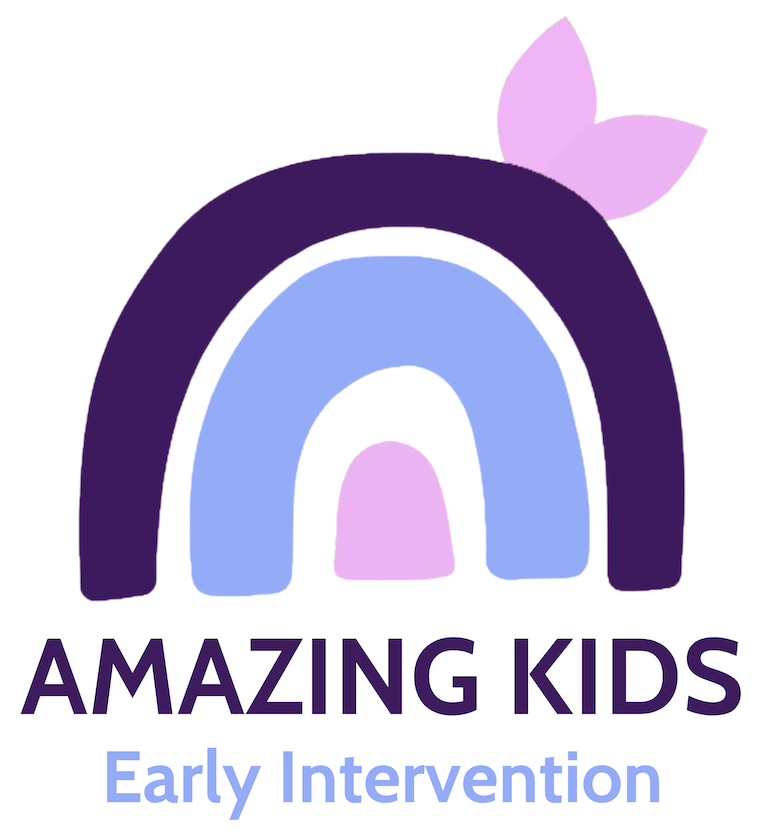Parents of young autistic children often seek ways to facilitate their child’s development while still allowing them to enjoy their childhood. One way to strike this delicate balance is through play-based learning, a core element in the Early Start Denver Model (ESDM) approach to early intervention. Skilled therapists at Amazing Kids utilise the therapeutic power of play to provide effective, evidence-based, and individualised services in Melbourne for young children on the autism spectrum.
As an ESDM early intervention provider, our goal at Amazing Kids is to ensure the therapy process is beneficial for your child’s growth and enjoyable and engaging. We understand the importance of fostering a positive and joyful environment where children feel connected, supported, and motivated to learn. By incorporating play-based activities into our ESDM approach, we can achieve better outcomes for young autistic children while strengthening the bond between them, their therapy team, and their families.
In this blog post, we will delve into the role of play in ESDM early intervention, the benefits of play-based therapy, and how parents can support their child’s progress by incorporating play into their daily routines. Our team of skilled therapists will share their expertise regarding play-based strategies within the ESDM approach to help parents understand how this method benefits their children and offer practical suggestions to enhance their therapy journey.
The Role of Play in the Early Start Denver Model (ESDM)
Play is a crucial aspect of the ESDM early intervention approach, as it engages children in meaningful and enjoyable experiences that promote learning and development across various domains. The incorporation of play in ESDM allows therapists to:
1. Create a naturalistic environment: Play helps to create a realistic context for children to practice new skills and behaviours, making it easier for them to generalise their learning to everyday situations.
2. Foster positive relationships: By engaging in play, children are encouraged to develop strong connections with their parents, caregivers, and therapists, which further enhances the therapy experience.
3. Enhance motivation: The enjoyable nature of play keeps children interested and motivated during therapy sessions, as they often perceive play-based learning as fun rather than a chore.
Benefits of Play-Based ESDM Therapy
The incorporation of play into the ESDM early intervention unlocks multiple benefits for young autistic children:
1. Boosts social skills: Through play-based activities, children learn essential social skills such as turn-taking, sharing, and making eye contact, which are crucial for their development and future well-being.
2. Enhances communication: Play encourages children to practice and improve verbal and non-verbal communication, fostering stronger language abilities and helping them better express their needs and desires.
3. Promotes cognitive development: By engaging in problem-solving, imagination, and decision-making during play, children can enhance their cognitive abilities and learn to think more creatively and independently.
4. Supports emotional regulation: Play provides opportunities for exploring emotions, understanding how to manage them, and building emotional resilience.
Practical Tips for Parents: Incorporating Play into Daily Life
To effectively support their child’s growth and development, parents can incorporate play-based learning into daily routines:
1. Choose appropriate toys: Select age-appropriate, developmentally beneficial toys that encourage imaginative play, cooperation, and problem-solving.
2. Foster a play-friendly environment: Create a safe, comfortable space for play in your home, with easy access to toys and room for exploration and movement.
3. Engage in joint attention: Participate in play alongside your child to encourage interaction and model appropriate play behaviour.
4. Follow your child’s interests: Use your child’s favourite activities and toys as a basis for play, customising the experience to maintain their interest and motivation.
Creating a Strong Parent-Therapist Partnership
A successful play-based ESDM early intervention relies on a strong partnership between parents and therapists. Parents play a pivotal role in their child’s growth by participating in therapy sessions, maintaining communication with the therapy team, and implementing play-based strategies at home. At Amazing Kids, our team of skilled therapists is dedicated to working collaboratively with families, ensuring that every child receives the support they need to reach their full potential.
Conclusion
For young autistic children, play-based learning is essential to the ESDM early intervention approach. Play facilitates growth across various developmental domains while nurturing strong parent-child and child-therapist relationships. By understanding the benefits of play and incorporating play-based learning into daily routines, parents can actively support their child’s progress and enjoy a robust therapy journey. Amazing Kids is proud to offer play-based ESDM therapy in Melbourne, providing every child with the individualised care and professional support they deserve.
